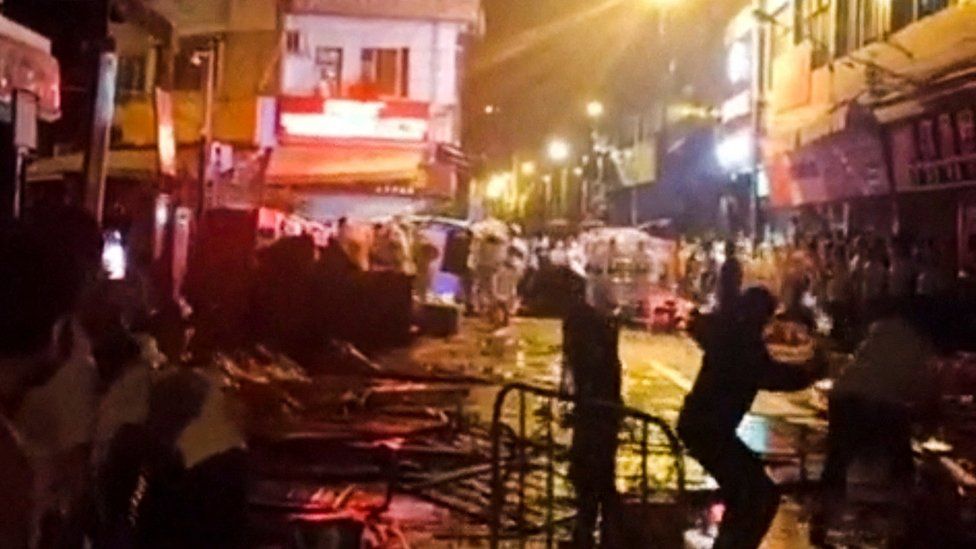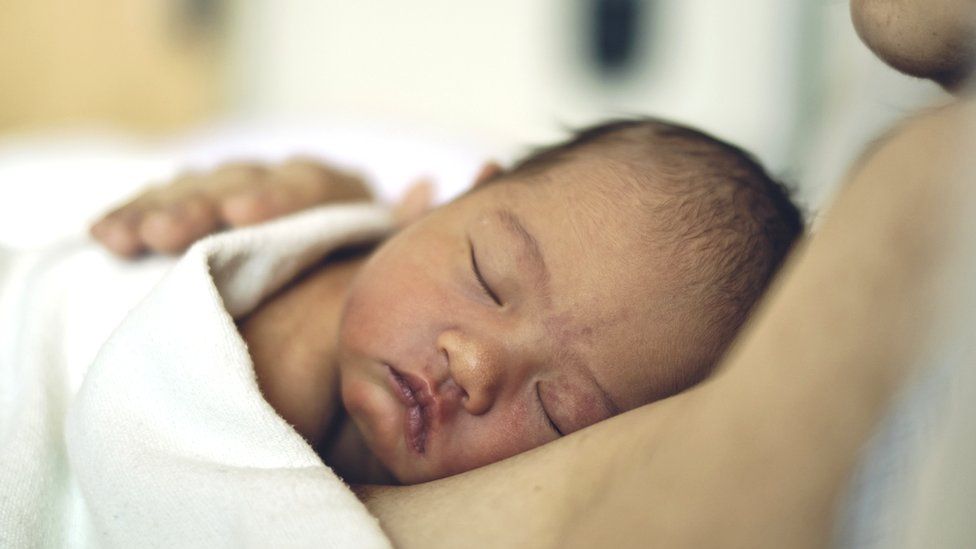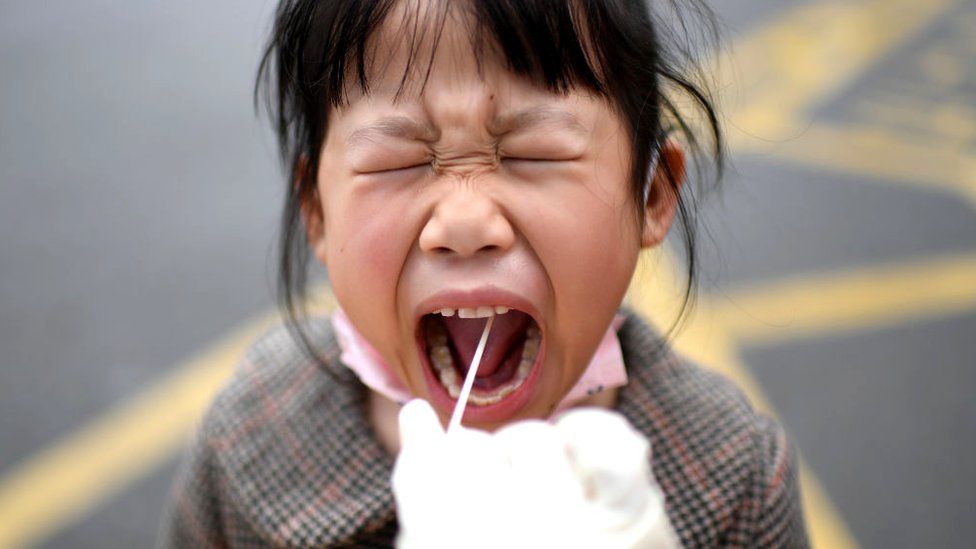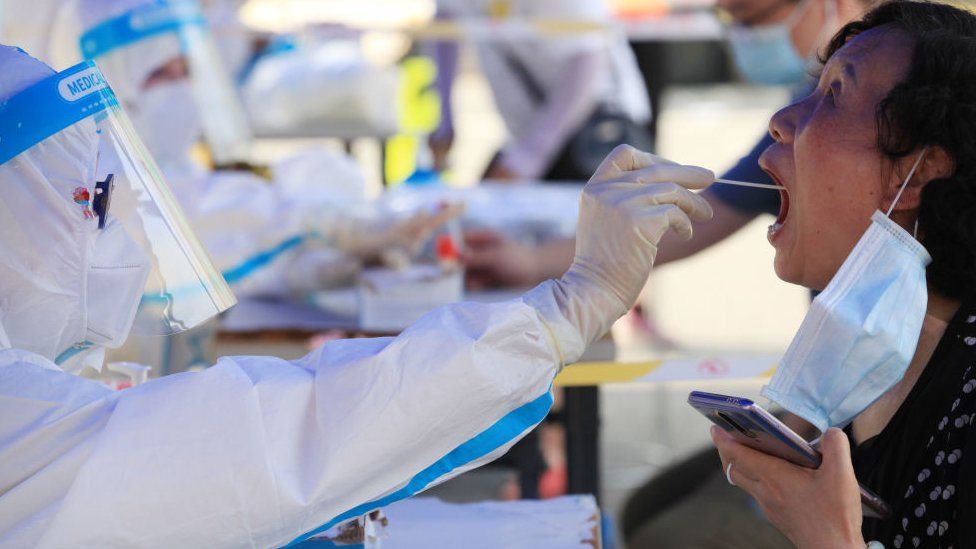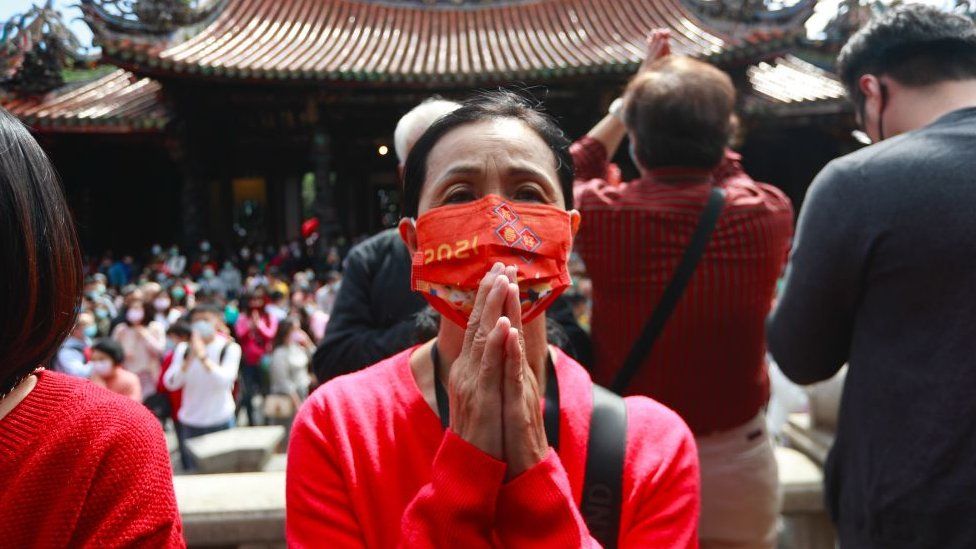SharecloseShare pageCopy linkAbout sharingimage copyrightGetty ImagesThey’ve been hailed as virus success stories – places that have seen virtually zero or single-digit Covid cases since the start of the year.But this month, Singapore and Taiwan have both seen a sudden and aggressive rise in cases – with Singapore logging 248 new cases just last week, and Taiwan 1,200 local infections. Both places have gone into a heightened state of restrictions, limiting the size of social gatherings and closing schools.By global standards, these numbers may seem small – but for these places, these figures would have been unthinkable just months ago. So what exactly went wrong?A tale of complacency: TaiwanTaiwan was among the first places to ban foreign visitors almost as soon as China reported the emergence of the virus – and these tough border restrictions still remain in place. Locally however, the population started to become complacent – as did its government. Hospitals stopped aggressively testing people for Covid, even those with a fever – a common symptom of the virus, according to Associate Professor Lin Hsien-ho of the National Taiwan University. According to online publication Our World in Data, Taiwan was administering just 0.57 virus tests per 1,000 people in mid-Feb. This compared to Singapore’s rate of 6.21 and the UK’s rate of 8.68 at around the same period. “There was a general assumption even with people showing symptoms that the probability of having Covid-19 was essentially zero,” Dr Lin told the BBC, adding that it stemmed from a belief that the virus could not break through Taiwan’s strong borders. “Doctors were not taking it seriously, hospitals were not alert, they were not doing a lot of contact tracing. There was definitely a certain sense of complacency.”This was especially highlighted when Taiwan relaxed its quarantine requirements for non-vaccinated airline pilots from an initial 14-day period, to five days – and then, just three days.Shortly afterwards, a cluster broke out connected to a handful of China Airlines pilots who had been staying at a Novotel near Taoyuan Airport. Many of those linked to this cluster were later found to have contracted the UK variant, known as B.1.1.7.The virus then spread through the community, eventually making its way to Taiwan’s “tea houses” – adult entertainment venues. image copyrightGetty Images”You had people singing, drinking, coming into frequent contact in an indoor setting. It was not just one teahouse but many on the same street – it was a very large super spreader event,” said Dr Lin. Professor Chen Chien-jen, an epidemiologist and former vice-president of Taiwan, says the fact that many who tested positive were unwilling to declare they had visited such adult entertainment venues made contact tracing even more difficult. “It just reminds us that even when a very small proportion of the population breaks the rules, it will lead to leakages,” said Dr Chen. He also adds that Taiwan failed to look at Japan’s adult entertainment industry – which at one point was also a hotbed of infections – before it was ordered shut. “We didn’t learn the lesson from Japan and reflect that Taiwan might have these same issues,” he said. According to Associate Professor Alex Cook of the National University of Singapore (NUS), Taiwan’s situation is a “a reflection of the constant risk of a strategy that puts too much emphasis on border control and not enough on measures to prevent within country spread”.Cracks in the wall: Singapore In Singapore however, it was a different story. Measures here have always been stringent despite low cases – public gatherings were kept to a maximum of eight, clubs have not been allowed to open and there is still a cap on mass gatherings like weddings.But there were still gaps in its vaccine playbook, and by late May, Singapore’s Changi Airport – which also boasts a popular shopping centre – had turned into the country’s biggest Covid cluster this year.Authorities later found out that a number of infected airport staff had been working in a zone that received travellers from high-risk countries, including those in South Asia. Some of these workers then went on to have their meals in the airport’s food courts – which are open to members of the public – further spreading the virus. Singapore has now closed its passenger terminals to members of the public temporarily as a result. image copyrightGetty ImagesMany of the infected were later found to have a highly contagious variant that first surfaced in India – known as B.1.617.Singapore has now also announced that it would segregate flights and passengers from high-risk countries and regions from those arriving from lower-risk places. Staff will also be ring-fenced and segregated by zones.Some online are asking why such measures were not taken earlier, noting potential loopholes were pointed out up to a month ago.But one expert said he thinks it was “inevitable” that the new variant would have found its way into Singapore. “I understand why people are feeling frustrated because the majority of Singaporeans have been extremely compliant,” said Prof Teo Yik Ying, dean of the NUS School of Public Health. “But we are not like China which can keep its borders completely shut. Our reputation as a country, our economy, is linked to our position as a trade hub.”[Also] if we look at the US last year, its worst virus cases came in not from China, but from travellers that went to Europe. So how many countries can Singapore close its borders to? We have to understand it’s never just closing off one country.”But Prof Cook says the country is still in a “very good position” to rein in its outbreak. “I’m hesitant to say that ‘things went wrong’, since Singapore is still, despite the stepping up of measures, in a very good position,” he said. “If we compare it to the UK, the typical daily cases is around 10% of the UK’s level after adjusting for population size. In other words, Singapore is tightening measures to pre-empt getting to a point where the virus can run amok.”A slow vaccination drive There is one problem that’s plaguing both Singapore and Taiwan: vaccines. Many in Taiwan didn’t want to take the vaccine when things were going well, with fears around the AstraZeneca vaccine – the main one Taiwan currently stocks – further adding to this hesitancy. Is the Oxford-AstraZeneca vaccine safe?The vaccines that work – and the others on the wayThe current rise in cases however, means that people in Taiwan are now flocking to get the vaccine. The only problem is – there isn’t enough to go around. Taiwan has to date received just 300,000 vaccines – for a population of 24 million. image copyrightGetty Images”We have tried our best to purchase vaccines from international companies but we didn’t get much. The only way to sustain our supply is to manufacture ourselves, this is very important for Taiwan,” said Dr Chen.Taiwan is currently working on producing two local vaccines, which could be available as quickly as the end of July. It’s a similar tale in Singapore. Around 30% of people have received at least one dose of the vaccine, according to Our World in Data, the highest vaccination rate in South East Asia. But the country is limited by its vaccine supply – though the government expects to vaccinate its entire population by the end of the year. “Ultimately we are limited by the supply. In countries like the UK, US, China, they have the capabilities to produce their own vaccines,” said Prof Teo. “We anticipate that the need for vaccines is going to be long term, so that’s why we are moving towards having our own manufacturing capabilities. Then we will no longer be reliant.”Prof Teo adds that the spike in both places is a lesson for countries that may now be seeing a dip in cases.”When we see countries in Europe, or the US starting to relax measures, I think they should be very cautious and look around the world to see what is happening,” he said. “What’s happened in Taiwan, Singapore – it’s a sign that we should not let our guard down.”
Read more →

